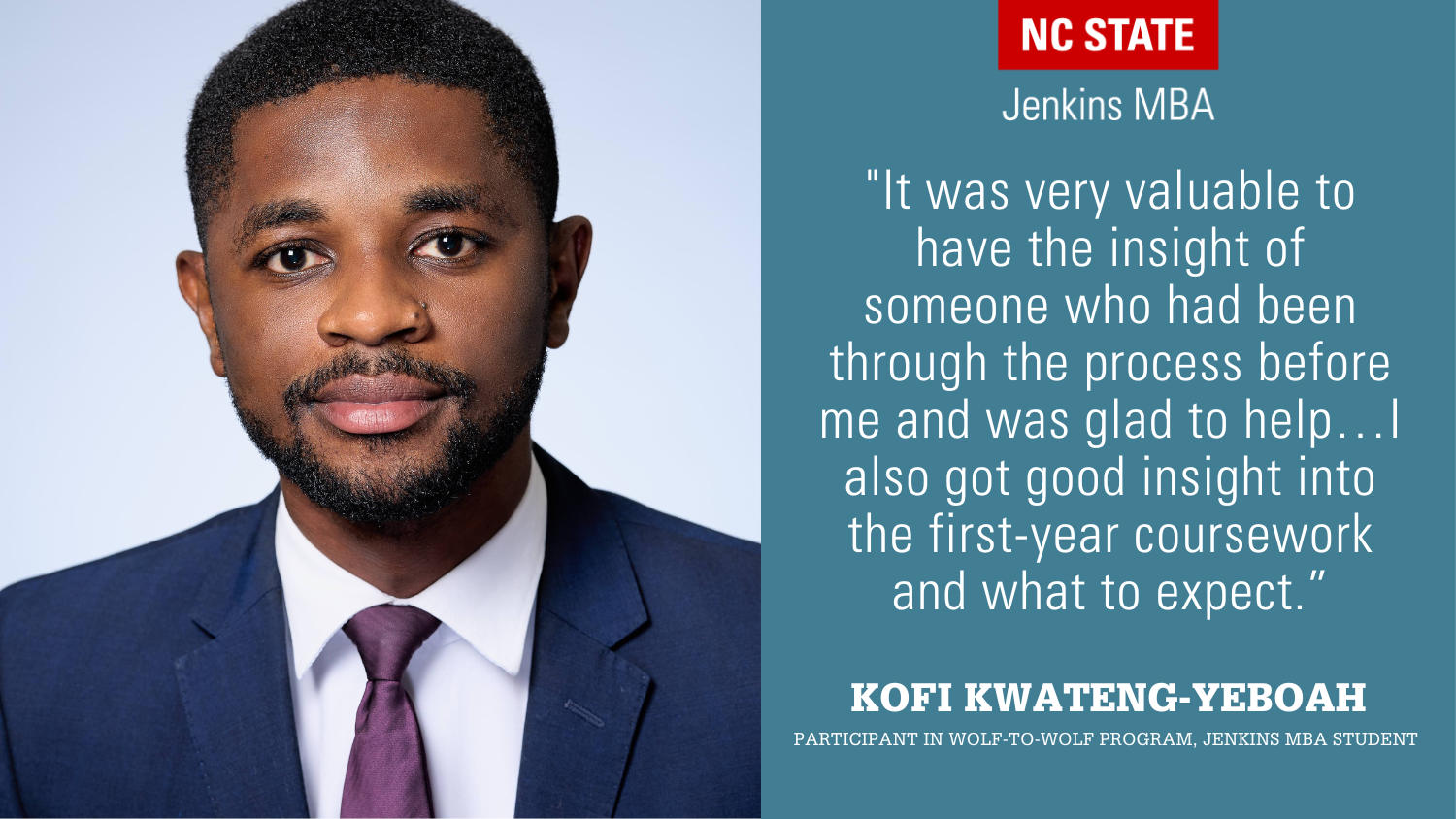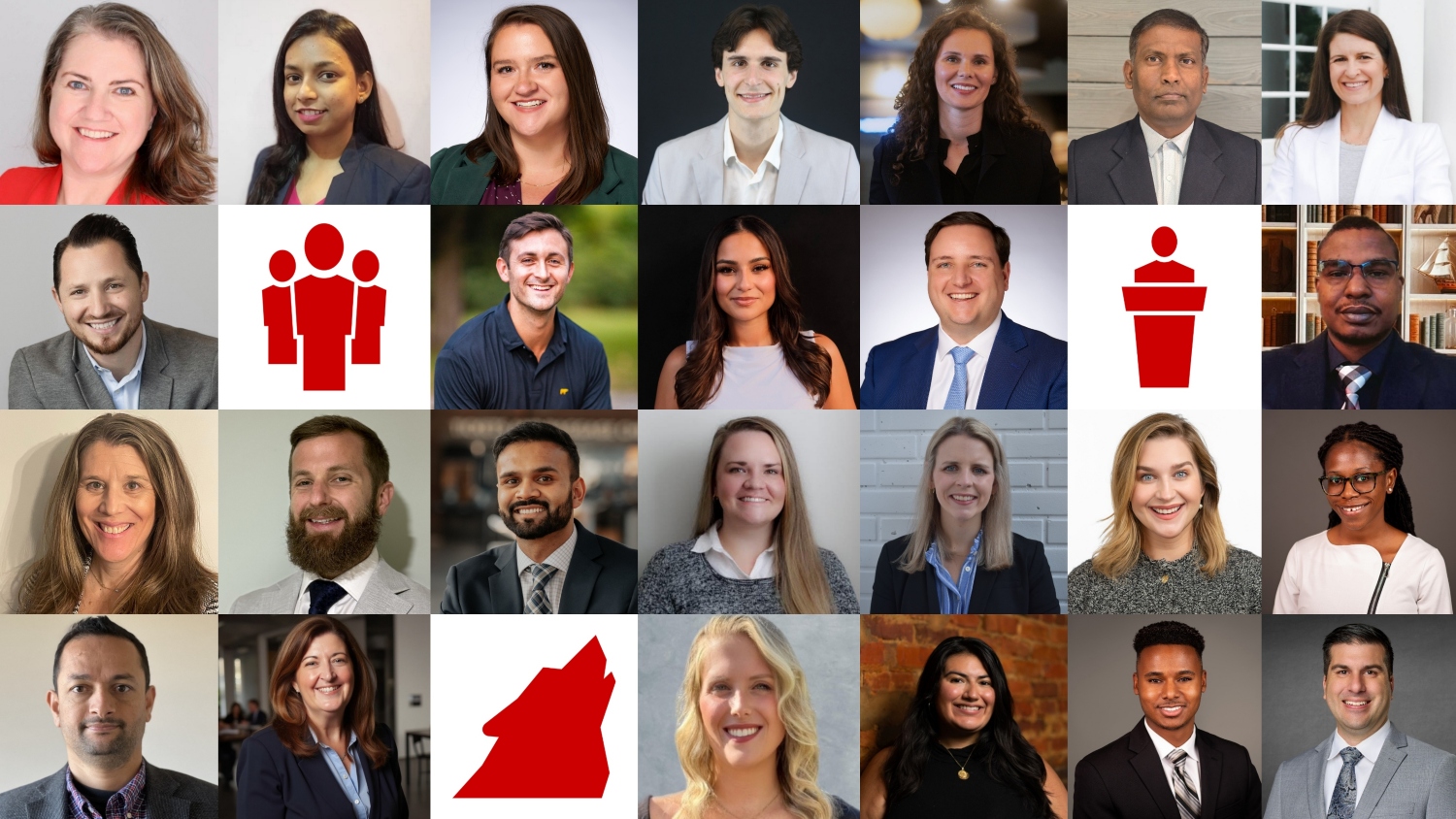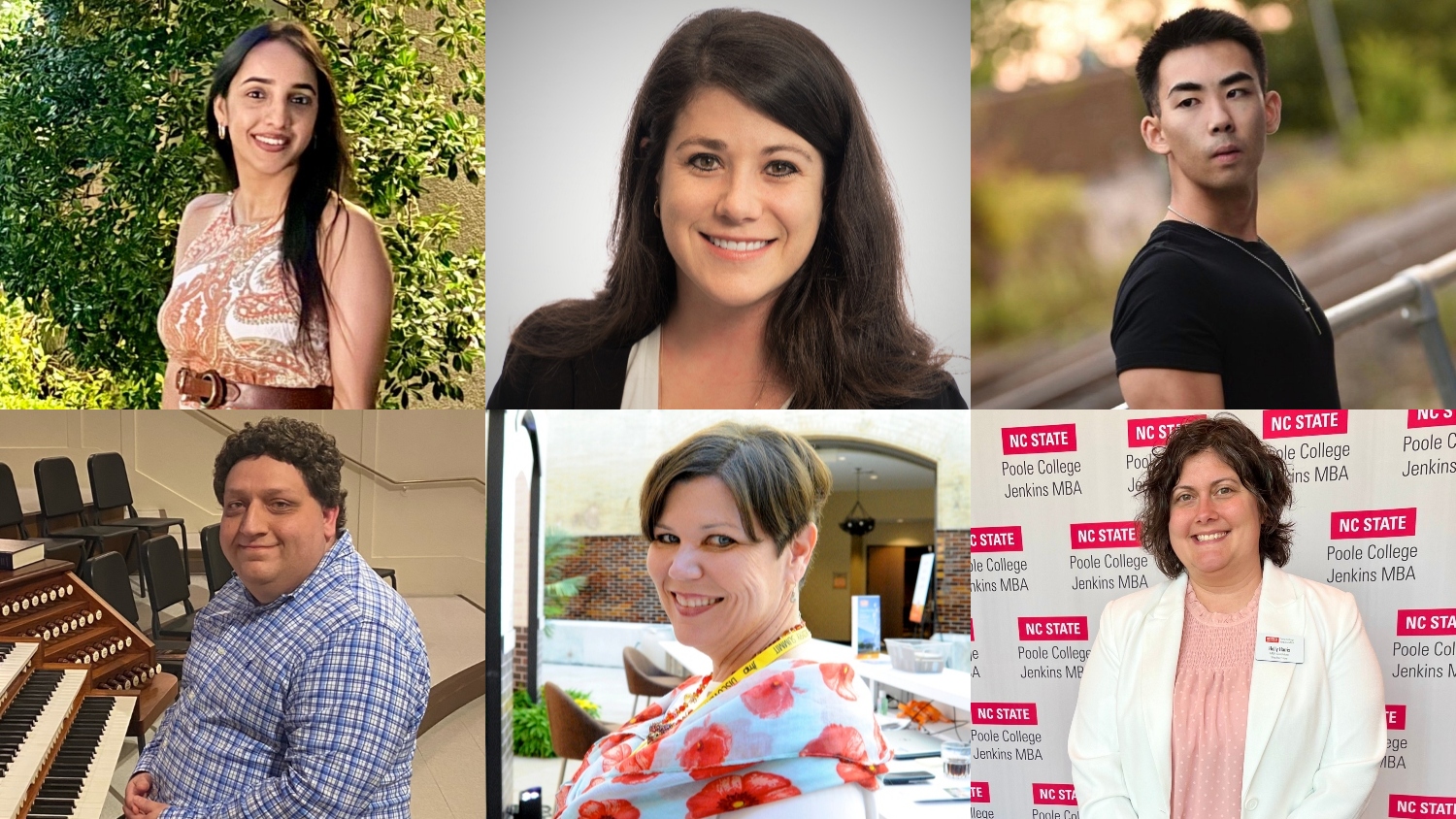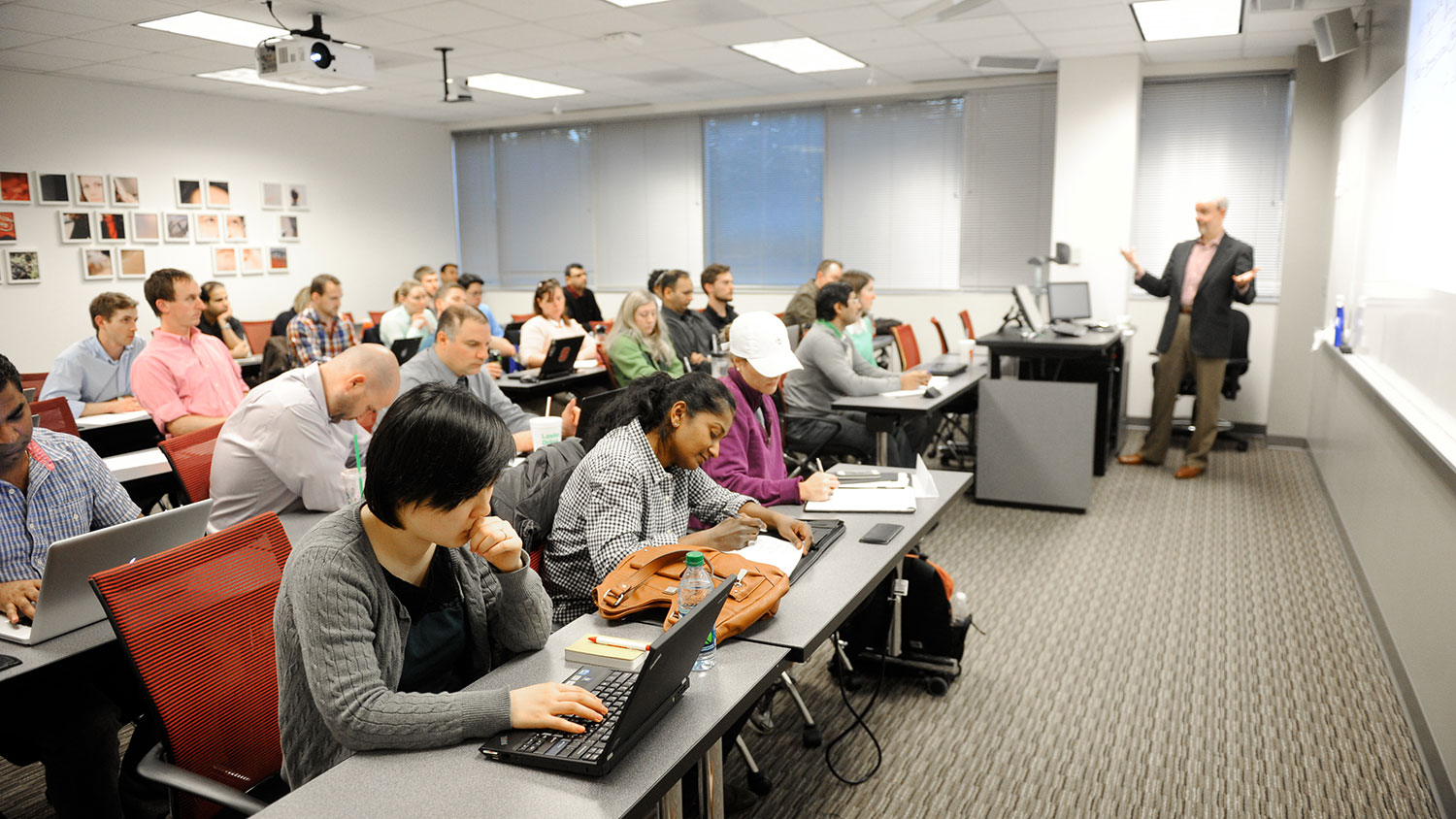Wolf-to-Wolf Ambassador Program Helps Students Acclimate to MBA Program
35 new first-year MBA students participated in the Wolf-to-Wolf ambassador program, addressing questions about living arrangements, commuting, the MBA curriculum and classes.

By Jess Clarke
As a first-year Jenkins MBA student last year, Kartikeya Shah had challenges when he arrived in Raleigh on his first trip to the U.S. He didn’t have a SIM card, so he couldn’t use his cell phone. And, concerned about America’s gun violence, he didn’t know how to find a safe place to live.
For the first few months, “It was really difficult for me to manage everything,” says Shah, from Jaipur, India. “It took me a while to acclimate myself.”

To help other new MBA students acclimate more easily, Shah started the Wolf-to-Wolf ambassador program for this fall’s entering class, with support from the MBA Student Association. About 35 new students — nearly all of the class — participated in the program, which ran from May through July and matched first- and second-year students. Seven or eight of the new students are from other countries.
First- and second-year students communicated remotely to address questions about living arrangements, commuting, the MBA curriculum and classes, and other issues. Shah was one of about 15 mentors.
“The No. 1 thing is safety….and where to live that is close to the university and the grocery store because many students do not have a vehicle. They prefer to live where other students are nearby,” says Shah, who expects the mentoring program to continue after he graduates next year.
By helping to resolve problems with debit cards, cell phones and other necessities, mentors remove obstacles for new students, so they can move forward in the MBA program.
“If these things are settled, you can focus on what you came here to do, which is your studies and your job.”
He mentored first-year student Kofi Kwateng-Yeboah from Accra, Ghana, as he adjusted to his first time in the U.S.

“It was really nice to have someone reach out and offer to be a resource to me during the transitioning process,” Kwateng-Yeboah says.
“It was very valuable to have the insight of someone who had been through the process before me and was glad to help…I also got good insight into the first-year coursework and what to expect.”
Kwateng-Yeboah and other new students are eager to learn about networking, internships and jobs.
Shah chose the Jenkins program partly because of Poole’s success in helping students find relevant internships that often lead to the employment they want. He also got a recommendation from a cousin in India, who studied engineering at NC State. “He told me NC State promotes diversity a lot. There are a lot of students here from different cultures,” Shah says.
He has helped support the diversity by organizing a club for international MBA students, of which he’s president. He’s planning job fairs and other events this semester for the club. A club dinner October 27 on campus will be open to all MBA students.
“To my mind, it is important to engage international students with people here who are U.S. citizens because that’s a good way to learn about the culture,” Shah says.
In helping new international students adapt to the culture, he has benefited by being a mentor in the Wolf- to-Wolf program.
“It has actually honed my leadership skills to take on the onus of things. For me and the other volunteers who mentored, it was helpful for improving our soft skills and learning how to talk to people,” he says. “Most importantly, we are expanding our network as well.”
Although Shah is thriving now as an intern with NetApp at Research Triangle Park and as a Poole graduate research assistant, the Wolf-to-Wolf program would have made his arrival in Raleigh less stressful.
“It was not that no one helped me, but I was reaching out to someone instead of someone reaching out to me. I hesitated,” Shah says. “If I’d had someone to guide me, it would have been really helpful.”
- Categories:


